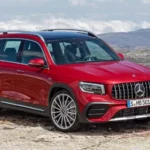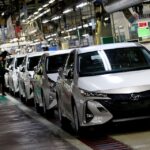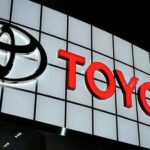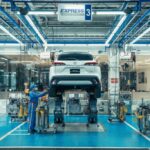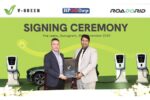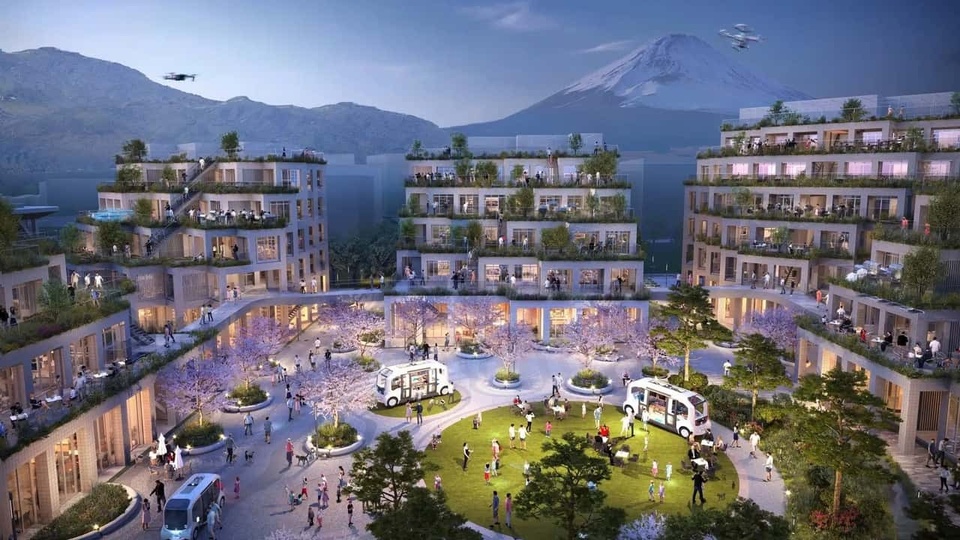
|
Nearly a century ago, Toyota began building an automotive empire in the town of Koromo, nestled between Tokyo and Kyoto.
Toyota transformed Koromo’s traditional economy of silk farming and weaving into an automotive hub by constructing over 300 large-scale factories related to vehicle and component production.
Toyota City is home to museums showcasing the brand’s iconic vehicles, such as the Toyota Kuragaike Memorial Museum, Toyota Kaikan, and the Toyota Bonote Kaikan Museum…
“New Territory”
Toyota first unveiled the Woven City project at the 2020 Consumer Electronics Show (CES) in Las Vegas. In February 2021, the first phase of Woven City, focusing on new energy vehicle production and research, was initiated.
After nearly four years of construction and design, Akio Toyoda, Chairman of the Board of Directors of Toyota Motor, announced at CES 2025 that Woven City had completed its first phase and would be welcoming new residents from this autumn.
Toyota’s Woven City is located in Shizuoka Prefecture, Japan, and is expected to cover an area of over 708,000 square meters.
This year, the city will welcome approximately 360 initial residents. When the entire project is completed, Woven City will become home to about 2,000 people, mostly Toyota employees, researchers, and technology engineers.
While Toyota City focuses on automotive manufacturing and establishing schools for young technicians to develop products, Woven City is geared towards researching and testing new transportation projects.
Zero-emission vehicles will undoubtedly be a feature of Woven City when it becomes operational. Smart technologies serving humans, such as autonomous driving and artificial intelligence, will also be implemented, transforming it into a modern technology hub.
|
Toyota City (left) and Woven City (right). Image: Toyota. |
“Woven City is a testing ground for future mobility solutions. They could be personal mobility devices like racing wheelchairs, because everyone deserves to experience the joy of speed. They could be unmanned vehicles, robotic pets, or flying cars…”, said Akio Toyoda at CES 2025.
Toyota is the only automaker present in Woven City, alongside technology companies and young startups in the fields of services and engineering. Daikin, Nissin, and UCC Japan have already confirmed their participation in this future city.
In Woven City, delivery and pickup services are handled by robots. Residents can use smartphone applications to navigate, monitor, and automate processes. Mail and laundry services are being studied for further integration of technology to improve daily life.
Each Carmaker’s Stronghold
In many countries, certain cities, though not bearing the brand name, are closely associated with the development of the automotive industry or a particular automaker.
Wolfsburg, Germany, home to Volkswagen’s headquarters, was constructed in 1938 solely to serve the group’s automotive factories.
Detroit, in the United States, is a famous locale synonymous with the American automotive industry, housing major automakers like Ford, General Motors (GM), and Chrysler.
There was even a time when it was nicknamed the “Motor City.” However, due to the decline of the Big Three automakers, the might of the US automotive industry has waned, and Detroit is not what it used to be.
In China, each major automotive group or manufacturer has established its own “territory” in a province. These are renowned automotive industry hubs, serving both production and R&D centers for future technologies.
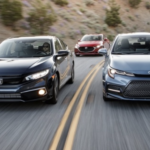 In the used car market, Honda and Toyota models are perennial favorites due to their reliability and affordable pricing. But why do these brands command a higher price tag than their competitors in the pre-owned arena? CNBC recently delved into the reasons behind this phenomenon, shedding light on the enduring value proposition of Honda and Toyota vehicles.
The Ultimate Luxury Experience: Mercedes-Benz Offers Massive Savings of Up to 130 Million VND on Select Models to Clear Stock
|





























